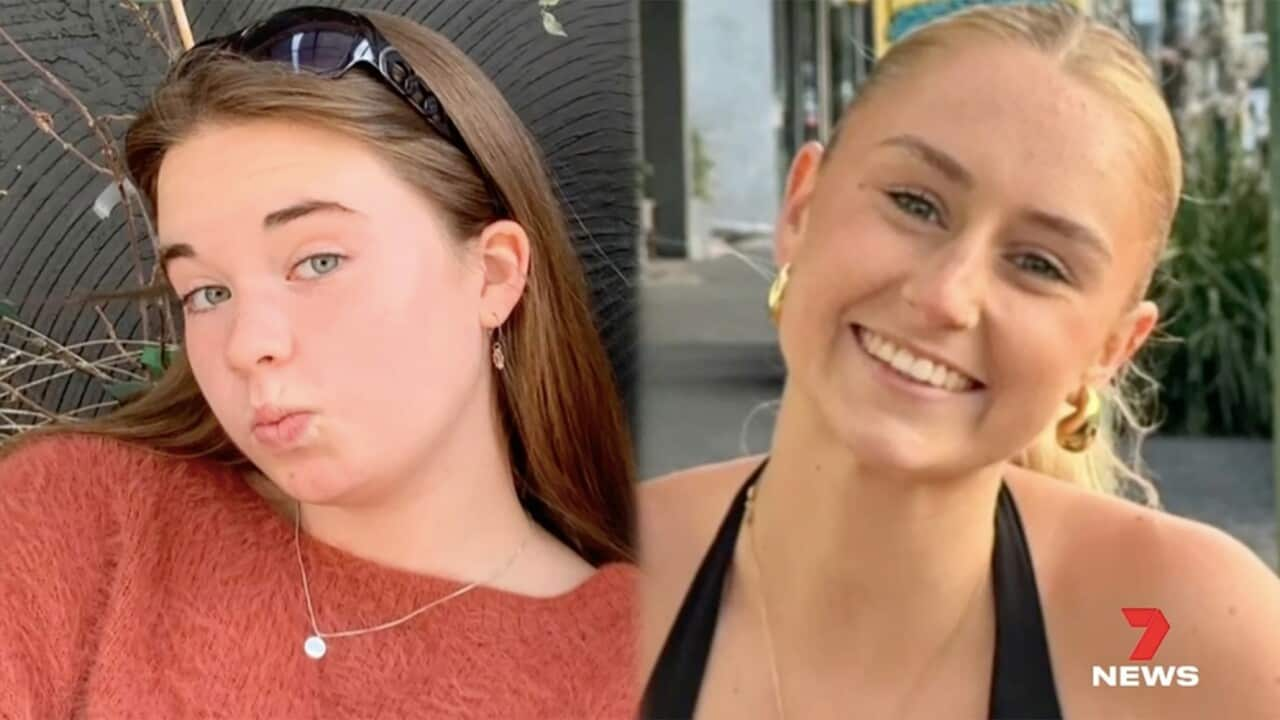TRANSCRIPT
Holly Bowles and Bianca Jones were two best friends travelling through Southeast Asia on their gap year adventure.
Now, the parents of both 19-year-old girls from Melbourne are at their hospital bedsides.
Some concerned tourists are now taking precautions.
Sophie Rupert is a Dutch Tourist travelling in Laos.
"Now because stuff really happened that when you are more careful. You think about it more. It's not that we don't drink anymore you just have to really be careful."
The teenagers from Melbourne's Bayside suburbs had been in Laos.
At the time of the incident, they stayed at Nana's backpackers in the popular tourist town of Vang Vieng.
Their night out for drinks is now at the centre of a suspected mass poisoning incident.
It comes as two Danish women in their 20s have died and at least 10 more travellers fallen ill.
Dr David Ranson is the head of the Department of Forensic Medicine at Monash University.
He says that symptoms of methanol poisoning such as vomiting, seizures, dizziness, and changes in vision may not appear until 12 hours after ingestion.
He says immediate action is crucial if there is suspicion on methanol poisoning - as it can lead to blindness, renal and organ failure, and severe acidosis.
Dr Ranson explains that treatment involves blocking alcohol dehydrogenase - which is the enzyme responsible for breaking down methanol.
"There's a couple of drugs that - well there is one main drug that can be used to try to prevent that enzyme working on methanol. It basically just keeps that enzyme busy on something else."
For the past decade, there has been increasing concern over the use of methanol in alcoholic drinks in some Southeast Asian countries.
Ethanol is the compound that makes drinks alcoholic, but because methanol is indistinguishable in taste, it is often illegally used as a cheaper alternative.
Methanol is a colourless and flammable liquid often used to produce fuel, insecticides, paint strippers, antifreeze, plastics, petrol and solvents.
The chemical is not meant to be consumed and is poisonous to humans.
It is being illegally added to alcohol in some countries with lax liquor laws.
For methanol to be present in beverages, it has to be intentionally added to them.
Dr Ranson says that one agent in treating methanol poisoning is ethanol itself.
"The alcohol dehydrogenase will preferentially work on ethanol in more alcoholic drinks rather than methanol. So if you keep giving the person low levels of ethanol then effectively that blocks the enzyme from working on methanol and the methanol will gradually come out of the body in your breath, in your urine, and so on."
Dr Ranson said removing methanol from the body before it breaks down is of utmost importance.
Ms Bowles was flown to Bangkok hospital, where she remains on life support.
While Ms Jones receives care at a separate hospital eight hour's drive north of the Thai capital.
The Australian government has updated its travel advice to Laos.
They are warning travellers to be alert to the potential risks - particularly with spirit-based drinks, which includes cocktails.
Global health care charity Médecins Sans Frontières - or M-S-F- has said that methanol poisoning cases are widespread in South East Asia.
It's often used as a cheaper alternative to ethanol in the continent.
Dr Knut Erik Hovda is a consultant at M-S-F.
He says that brains and eyes are usually the primary organs affected by the poisoning.
"All cells in the body but most predominantly the cells in the brain and the vision. And there is a toxic effect on the humans. Not from the alcohol itself but after sometime when this has been transformed to this acid in the body."
The poisoning potentially deadly even in small doses, and poses serious health risks to not just tourists.
Dr Hovda says it affects so-called have-not's the most.
"It's affecting most commonly the poorest of the poor and the attention never gets to the media. And that's why it's a silent killer and a forgotten crisis."
Ms Bowles' uncle, Dale Bowles, had earlier said [[Tuesday]] that the family is devastated.
"We come together in tough situations and there's none tougher than this. You just get a really sick feeling in your stomach and you are in complete shock."
The families of both teenagers are receiving consular assistance from the Department of Foreign Affairs.
As the two closest of friends are held tightly in the thoughts of many.













